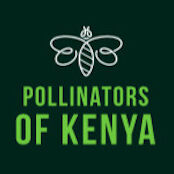Protecting Kenya’s Pollinators: A Vital Task for Sustainable Agriculture
Pollinators are essential for ensuring the sustainability of agriculture in Kenya. They play a critical role in pollinating crops, which leads to increased yields and improved food security. Unfortunately, the population of pollinators in Kenya is declining rapidly due to various factors, including habitat loss, pesticide use, climate change, and disease. As a result, it is becoming increasingly important to take steps to protect Kenya’s pollinators. In this article, we will discuss the importance of protecting Kenya’s pollinators and provide some tips on how you can help.
Why Protecting Kenya’s Pollinators is Important?
Pollinators, including bees, butterflies, and other insects, play a crucial role in pollinating crops, which leads to the production of fruits, vegetables, and nuts. Without pollinators, many of the foods we eat would not exist, and agriculture would be significantly impacted. In Kenya, pollinators are responsible for pollinating coffee, tea, avocado, mango, and other crops that are vital to the country’s economy. Protecting Kenya’s pollinators is, therefore, essential for ensuring sustainable agriculture and food security.
Factors Threatening Kenya’s Pollinators
There are various factors that are threatening the population of pollinators in Kenya. These include:
-
Habitat loss: Destruction of pollinators’ natural habitats, including forests, grasslands, and wetlands, is one of the primary reasons for the decline in pollinator populations.
-
Pesticide use: The use of pesticides in agriculture is a significant threat to pollinators. Many pesticides are toxic to bees and other pollinators, and exposure to these chemicals can result in reduced reproductive success, impaired navigation, and even death.
-
Climate change: Changes in temperature, rainfall patterns, and extreme weather events caused by climate change are affecting the distribution and abundance of pollinators.
-
Disease: Pollinators are also susceptible to various diseases, including parasitic infections, bacterial infections, and viral infections.
Ways to Protect Kenya’s Pollinators
Protecting Kenya’s pollinators is crucial for ensuring sustainable agriculture and food security. Here are some tips on how you can help:
-
Plant pollinator-friendly flowers: Planting flowers that are rich in nectar and pollen can provide food for pollinators and help increase their populations.
-
Reduce pesticide use: Reducing pesticide use in agriculture can help protect pollinators from exposure to toxic chemicals.
-
Create pollinator habitats: Creating pollinator habitats, such as flower gardens, meadows, and hedgerows, can provide nesting sites and food sources for pollinators.
-
Support sustainable agriculture: Supporting sustainable agriculture practices, such as organic farming, can help reduce the use of pesticides and promote pollinator-friendly practices.
Frequently Asked Questions (FAQs)
Q: Why are pollinators essential for agriculture? A: Pollinators play a critical role in pollinating crops, which leads to increased yields and improved food security.
Q: What are the threats to pollinators in Kenya? A: Habitat loss, pesticide use, climate change, and disease are some of the primary threats to pollinators in Kenya.
Q: What can I do to protect Kenya’s pollinators? A: Plant pollinator-friendly flowers, reduce pesticide use, create pollinator habitats, and support sustainable agriculture practices.
Conclusion
Protecting Kenya’s pollinators is vital for ensuring sustainable agriculture and food security. By taking simple steps, such as planting pollinator -friendly flowers and reducing pesticide use, we can help protect pollinators and ensure the long-term sustainability of agriculture in Kenya. It is essential that we recognize the value of pollinators and take action to protect them. By doing so, we can contribute to a healthier environment, stronger agricultural systems, and a more sustainable future for all. Let us join hands to protect Kenya’s pollinators and preserve our precious natural resources for generations to come.




